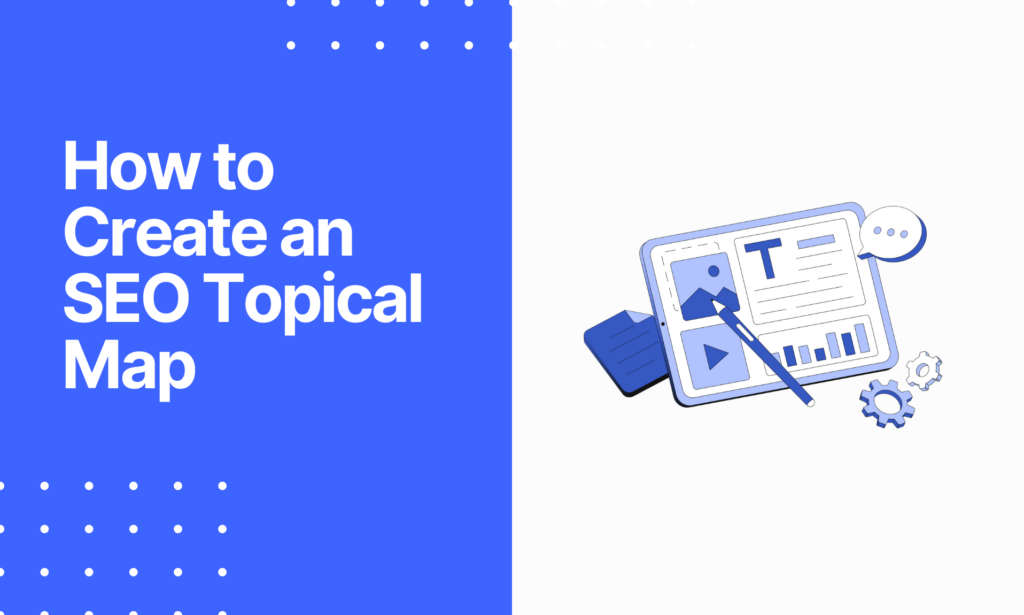Every marketing dollar has to count when you’re a small business operating on a tight budget. While paid ads can help bring in targeted traffic fast, search engine optimization (SEO) offers a cost-efficient channel for getting found by motivated customers ready to buy.
In this guide, I’ll shed light on my approach to building an affordable SEO plan that’s focused on high-impact strategies and free tools that provide real results.
By the end, you’ll have a solid blueprint for driving qualified traffic and conversions through this essential digital marketing pillar.
Why SEO Matters for Small Businesses

Driving qualified organic traffic from top search engines like Google simply makes sense for small businesses in today’s online marketplace. Unlike buying ads, you aren’t paying per each visitor that arrives at your site through SEO efforts.
In competitive niches, earned search visibility is often what makes or breaks new brands against entrenched leaders. The leads you generate can become site subscribers or paying customers far into the future.
On a human level, SEO improves visibility and brand familiarity, exactly where people are searching for solutions you provide.
By targeting informational queries with valuable content and reliable solutions, I built authority that earns clicks and conversions above competitors. The ongoing traffic also increased email list sign-ups and social media followers.
Financially, SEO delivered the lowest customer acquisition cost next to direct referral sales for my business. A site with rich, useful information on your niche demonstrates expertise while supporting sales conversations.
No other scalable marketing channel could match SEO’s profitability and supporting brand presence simultaneously.
Join 900+ to receive a weekly SEO video from my YouTube channel, which I’ll share, and an actionable SEO tip every week.
Elements of an Affordable SEO Plan
With limitless options, narrowing SEO to core components for an executable strategy on a tight timeline and budget proved crucial for results.
Through research and trial and error, I determined the highest-yield activities for driving traffic, leads, and sales without breaking my modest marketing allowance.
Keyword Research

Identifying the precise search queries with enough volume for business impact shaped my early SEO targeting and content planning.
While some paid tools provide helpful directionality on user intent and behavior, free extensions like Google Keyword Planner and Ubersuggest still offer a solid starting point.
You can also create a free SEO keyword research tool like Keyword Tool.
After creating an initial list of keywords, I validated actual monthly searches against competitor content traction to focus on hot topics.
On-Page Optimization
Creating content around those validated keywords drove relevance for each new blog post and website page.
Through on-page elements like page titles, URL structures, meta descriptions, structured data, alt text, and strategic keyword placement in the content itself, I signaled relevancy and expertise to search engines.
This helped surface my insights higher against established competitors already ranking well.
Content Creation
Taking a two-pronged approach, I dedicated effort to long-form guides that go deep on core user questions while also publishing my quick takes on breaking news and trends in the SEO world.
Both content types play important SEO roles; evergreen guides continue accruing value as they rank in suggested related topics, while timely thought leadership keeps visitors returning and sharing my brand across social channels.
Backlink Building
Links to your content signal third-party endorsement while facilitating discovery by search engines like Google, which list links as public compliments of quality and authority.
As votes of confidence reinforce page relevance, I pursue strategically earned backlinks from within my industry’s blogging and online publications.
Guest posting and contributor relationships help amplify my messages and expertise to align audiences open to quality partnerships that also move the visibility needle.
Social Media Marketing

Driving visitors to freshly published content and then promoting the most popular posts across social media reinforced SEO worthiness signals to search engines, which monitor engagement too.
This amplified content shelf-life and provided additional visibility as followers shared my posts across their personal social channels.
Maintaining an active presence through my business profiles and within relevant industry forums and groups supported ongoing awareness and relationship-building with customers online.
Analytics and Tracking
Connecting my website and search traffic analytics to the content performance reports revealed leading indicators of ranking potential and user satisfaction.
Monitoring which specific pages earned the most organic search visits, social shares, on-site engagement, and email subscribers spotlighted both wins to replicate across other keywords plus underperformers to revisit or replace in my plans going forward.
Optimizing on a Budget
While hiring one of the many digital marketing agencies touting proprietary ranking secrets tempted me endlessly as I struggled through initial stagnant results solo, necessity became the mother of invention for overcoming budget constraints to find tactical advantages.
Taking matters into my own hands for baseline on-page optimization, keyword research, and creating informational blog content formed the starting point for seeding relevance markers and expert authoritativeness.
Even rudimentary efforts that demonstrated an understanding of technical components are now factored into Google’s ranking evaluations according to recent algorithm updates.
Basic yet essential functionality in free tools like Google Keyword Planner, Google Search Console, ScreamingFrog SEO Spider, Grammarly, Canva, and Buffer proved sufficient for executing core objectives in my early efforts:
- Keyword research
- Website auditing
- Reading level optimization
- Image creation
- Social media cross-posting
Producing the first year of blog content myself also made financial sense and forced me to intimately understand customer pain points and informational needs I aimed to solve.
This authenticity shined through in long-form buying guides, product reviews, expert interviews, and personal lessons from my own experience captured in case study posts.
For link building, creativity and persistence drove opportunities to place guest contributor posts in mid-tier industry blogs happy for knowledgeable insights from rising subject experts.
Link insertion in these articles amplified click-throughs back to related guides on my site, seeding referral traffic while gaining endorsements from an expanding domain radius.
When You May Need Additional Help
After an initial year pursuing organic visibility gains through my own perseverant efforts, even scrappy bootstrappers face scenarios where investing additional expertise and resources makes sense to sustain momentum.
Transferring to a new web hosting provider and a contemporary CMS like WordPress presented early technical challenges exceeding my limited coding capabilities.
Rather than risk botching the migration and damaging site performance, hiring a freelance developer to handle the transition and optimization saved endless headaches.
The successful project justified further outsourcing specific SEO tasks to shift my focus fully toward scaling content production and community engagement.
I evaluated several digital marketing consultants before selecting an agency that demonstrated expertise across both technical and creative areas where I required assistance moving forward:
- Site speed and structured data optimization
- Visual refresh of website headers, footers, and sidebars
- Quarterly link prospects list for guest posting and partnerships
- Monthly social media content calendar with optimal publishing times
Getting Started With Your SEO Strategy
Transitioning from concept to execution remains most site owners’ greatest hurdle on the path to organic growth.
Lacking hard data and indicators in your niche’s competitive landscape makes for an intimidating first step into the arena against established sites dominating rankings presently.
By breaking down the initial SEO launch plan into discrete phases with specific deliverables, I structured a strategic sequence that built sustainable momentum:
Conduct Competition Analysis
Using incognito browser sessions to simulate a new user’s search experience, I tracked first-page listings for primary keywords, noting content themes, backlink profiles, engagement signals, and any consolidated owners behind sites repeatedly indexing highly.
This provided key intelligence for presenting differentiated value propositions in my work.
Define Targets and Tracking Metrics
Getting clear on tangible goals created accountability in my efforts—my targets encompassed new organic site visitors monthly, total email list subscribers quarterly, plus monitored rankings for 10 priority keywords.
I connected Google Analytics and Search Console to track progress, plus social media analytics for holistic engagement metrics.
Complete Technical SEO Audit
Crawling my site through various tools highlighted errors to fix, plus enhancements for site speed and mobile responsiveness.
I implemented the developer’s recommendations, including image compression, upgraded hosting plan, canonical tags to prevent duplicate content, meta keyword adjustments, and refreshed page titles across top-trafficked areas.
Score Quick Content Wins
Seeing newly published posts climb search results in days motivated ongoing participation, so I focused my first efforts on informational queries around trending issues or recent news events.
The search intent for these time-sensitive topics lent itself easily to detailed analysis commentary I could quickly produce to demonstrate subject proficiency.
Map Out Future Editorial Calendar
With an initial bank of relevant posts accruing traffic, I planned a quarterly content calendar for publishing schedules across categories.
This included evergreen pillars like software advice and detailed how-to guides.
Leveraging Free and Low-Cost Tools
While some SEO software usage justifies financial investment to access expanded capabilities at scale, in launching efforts, free and freemium solutions can power excellent progress.
Here are the best free SEO tools for expert-level insight without the typical subscription fees:
- Google Keyword Planner – Obtain monthly search volumes for identifying high-potential informational topics and buyer keywords.
- Ahrefs Site Explorer – See domains currently linking to a specific webpage revealing additional backlink opportunities.
- MozBar – A browser extension for page-level SEO audits showing optimization gaps plus quality and authority metrics.
- BuzzSumo – Analyze trending content performance to inspire ideas and influencer partnerships.
- Google Search Console – Connect for index status, crawling errors, page speed insights, and manual image enhancements.
- Grammarly – Catch writing errors and style issues before publishing.
- Canva – Quickly produce social media graphics to catch the eye and embed visual SEO elements like filename and alt text.
- BeFunky – For more advanced visual content needs, easily create engaging custom images with an intuitive design interface.
The freemium tool space also offers solid SEO capabilities to support scaling efforts before paid plans become necessary:
- Semrush (7-day trial) – All-in-one SEO toolkit, including backlink audits, site crawler, plus content research databases.
- Serpstat (7-day trial) – Powerful rank tracking and URL performance monitoring for your most important keywords.
- Buffer (Generous free plan) – Expand social media reach through scheduled posts and team management features.
Measuring and Reporting on SEO Progress
Monitoring meaningful metrics keeps efforts aligned to business goals as consumer behavior evolves, plus new technologies and competitors continually surface.
Leading indicators that demonstrate early momentum:
- Ranking advancements for target keyword terms
- Increased organic traffic to newly created content pages
- A rise in authoritativeness metrics like domain and page Authority
Lagging indicators that connect the bottom line dots:
- Click-through rates from organic traffic sources
- Lower cost per lead and customer acquisition
- More conversions from email and social referrals
I track weekly, monthly, and quarterly goals across channels, showcasing incremental progress towards annual targets for visitor quality, email subscribers, and clientele expansion.
Supporting teams contribute insights into the latest content traction and technical issues for me to translate into potential site changes.
Common SEO Mistakes to Avoid

While core principles grounded my successful organic growth strategy through sincere care for the user experience, even experts contend with principal-agent problems if we lose sight.
Chasing vanity metrics like placements or backlinks themselves betray the customer-first values upon which I built trusted visibility over time in competitive search results.
Staying above these common SEO pitfalls maintained positive momentum:
Don't Sacrifice Readability
Stuffing posts with keywords and awkward phrasing erodes user trust rapidly.
Finding natural alignment between high-value topics and what audiences actually ask about builds goodwill and engagement.
Reject Shortcuts
Buying backlinks rather than earning genuine publisher endorsements breaks search engine guidelines with increasing penalties nowadays.
Though expedient, these short-lived gains set you back a long time.
Anchor Fundamentals Before Scaling
Perfecting site architecture, optimizing core pages, and securing an initial domain link sphere improves the value proposal to visitors first.
Only then does expanding across more content or keywords bear fruit.
Obsess Over Conversions
If newly gained traffic leaves without meaningful actions, neither search bots nor executives will smile upon wasted efforts for long. Connect analytics to pinpoint friction points in user journeys dropping off soonest for priority fixes.
Key Takeaways for Your SEO Success
Beyond the tactical components within an affordable SEO plan lie a few foundational principles that guided my overall strategy and state of mind through months that challenged my grit.
By internalizing lessons from veteran creators succeeding through relentless efforts day after day, I embraced the patience and dedication required to achieve my goals.
Have Realistic Expectations on Timelines
Depending on your niche competitiveness, scaling search rankings as an unknown small business can take 6-12 months before observable changes, even if executing correctly across best practices.
But once your content secures those hard-fought positions, qualified traffic tends to build steadily thanks to search engines attributing greater relevance and trust to established sites.
Obsess Over User Experience
While search engines drive attention, actual human visitors must find your content satisfying enough to stick around, click deeper pages, and potentially convert to email subscribers or paying customers.
Balancing informative solutions with seamless site navigation demonstrates equal respect for both search bot and user needs.
Master Both Precision and Flexibility
Establishing structured frameworks for core SEO components grounds efforts in proven fundamentals while adapting around emerging observations to prevent stagnation.
An editorial calendar keeps your pipeline filled with fresh blogs while pausing lesser-performing sections tilts the focus toward hot trends.
Test and Validate Improvements Continuousl
Not all experiments succeed, but the accumulated learnings fuel ongoing evolution.
Tracking key metrics connected to business impact shapes data-backed decisions on securing resources for winning approaches and stopping those showing diminishing returns.
Treat SEO as a Never-Ending Journey
Once you achieve benchmark targets for new visitor growth, secured media coverage, or email list subscribers, celebrate briefly, then set your sights higher.
Customer needs constantly change, so your informative solutions must keep pace to retain visibility and trust as their go-to authority.
Wrap-Up
Through research, planning, and dedicated execution focused on user experience wins, small businesses can gain significant organic visibility and conversion growth through SEO. Just by sticking to fundamentals and avoiding common pitfalls, the steady approach will deliver lasting returns.
I am more than happy to address any additional questions on structuring your own affordable SEO blueprint for measurable success in the coming year.
Don’t hesitate to reach out to continue the conversation on navigating this vital pillar of digital marketing to expand your audience and positively impact more of the customers you aim to serve.


